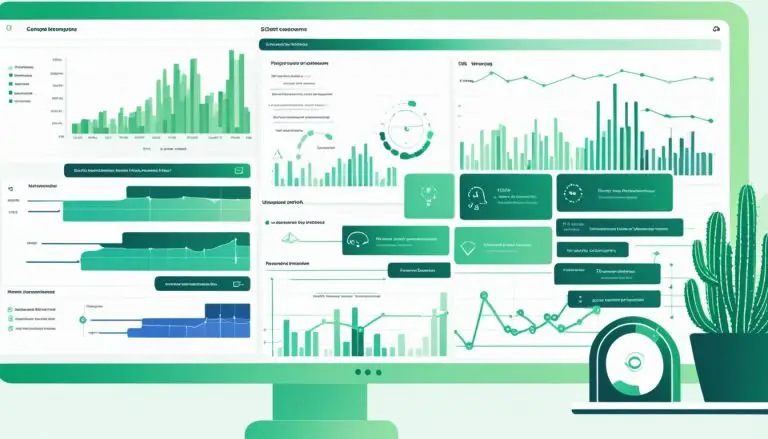Unraveling Cyber Safety: What is a Firewall Explained
In today’s digital age, protecting our online presence is more critical than ever. One vital component of cyber safety is a firewall. A firewall is a network security device that acts as a barrier between external networks and the network being protected. Its main function is to inspect incoming and outgoing traffic, identifying and blocking potential threats, such as hackers and malware attacks.
Firewalls play a crucial role in safeguarding personal and enterprise networks. They create a secure boundary that filters data based on preconfigured rules, allowing legitimate traffic to pass while blocking unauthorized access. By doing so, firewalls prevent cyberattacks, data breaches, and unauthorized access to sensitive information.
There are various types of firewalls, each offering different levels of security and functionality. These include packet-filtering firewalls, stateful firewalls, deep packet inspection firewalls, application-aware firewalls, and next-generation firewalls (NGFW). Next-generation firewalls, in particular, provide advanced threat protection and additional features like SSL inspection, user identity awareness, application control, and centralized management and reporting.
Key Takeaways:
- A firewall is a network security device that protects against unauthorized access and cyber threats.
- Firewalls act as a barrier between external networks and the network being protected.
- They inspect incoming and outgoing traffic, using preconfigured rules to distinguish between legitimate and malicious activity.
- Different types of firewalls offer varying levels of security and functionality.
- Next-generation firewalls provide advanced threat protection and additional features beyond traditional firewalls.
Understanding Firewall Functionality
Firewalls act as a barrier between an external network and the network they protect, working tirelessly to keep threats at bay. They play a vital role in network security by inspecting incoming and outgoing traffic and blocking unauthorized access. But how exactly do firewalls work? Let’s explore their functionality and the different types available.
Types of Firewalls
Firewalls can be categorized based on how they filter data or by the system they protect. Here are some of the most common types:
- Packet-Filtering Firewalls: These firewalls examine data packets based on predetermined rules. They compare the packet’s source and destination addresses, port numbers, and other packet information against a set of filters to determine if it should be allowed or blocked.
- Stateful Firewalls: Stateful firewalls maintain information about established connections, which allows them to inspect incoming packets in the context of the entire conversation. This enhances security by ensuring that only legitimate traffic is allowed through.
- Deep Packet Inspection Firewalls: These firewalls go beyond simple packet filtering and analyze the content of packets to detect and prevent sophisticated threats. By examining the payload of each packet, they can identify malicious patterns and behaviors.
- Application-Aware Firewalls: Application-aware firewalls provide granular control over network traffic based on specific applications. They can regulate access and enforce security policies based on the application’s identity and behavior.
Each type of firewall offers different levels of security and functionality, allowing organizations to choose the most suitable option based on their specific needs and requirements.
| Firewall Type | Features |
|---|---|
| Packet-Filtering | Filters packets based on source/destination addresses and port numbers |
| Stateful | Maintains information about established connections for enhanced security |
| Deep Packet Inspection | Analyzes packet content to detect and prevent sophisticated threats |
| Application-Aware | Provides granular control over network traffic based on specific applications |
As technology evolves, next-generation firewalls (NGFW) have emerged, offering advanced threat protection and additional features beyond traditional firewalls. These next-gen firewalls can perform SSL inspection, allowing for secure examination of encrypted traffic. They also incorporate application control, user identity awareness, deep packet inspection, centralized management, and reporting capabilities, providing comprehensive network security.
Packet-Filtering Firewalls
Packet-filtering firewalls evaluate data packets against a set of rules to determine whether they should be allowed or blocked. These firewalls act as the first line of defense for a network and are essential for protecting against unauthorized access and malicious traffic. By examining the header information of each packet, packet-filtering firewalls can make decisions based on criteria such as source and destination IP addresses, port numbers, and protocol types.
One of the main advantages of packet-filtering firewalls is their efficiency. Due to their simplicity, they can process packets quickly and have a minimal impact on network performance. They can be deployed as both hardware-based devices and software-based solutions, making them flexible for various network architectures.
How Packet-Filtering Firewalls Work
When a packet enters a network protected by a packet-filtering firewall, it is compared against a set of predefined rules. These rules determine whether the packet should be allowed or denied based on specific criteria. If a packet matches one of the rules, it is either accepted or rejected. If it doesn’t match any rules, the firewall can be configured to either block the packet by default or allow it through, depending on the network’s security requirements.
| Advantages of Packet-Filtering Firewalls | Limitations of Packet-Filtering Firewalls |
|---|---|
|
|
While packet-filtering firewalls provide a basic level of protection, they have limitations in terms of their ability to inspect packet contents and detect more sophisticated threats. This has led to the development of more advanced firewall technologies, such as stateful firewalls, deep packet inspection firewalls, and application-aware firewalls, which offer additional security features and functionality.
Stateful Firewalls
Stateful firewalls keep track of connections and actively monitor ongoing traffic to maintain a secure network environment. They operate at the network and transport layers of the OSI model, providing enhanced security compared to packet-filtering firewalls. By maintaining information about established connections, stateful firewalls can make more informed decisions about allowing or blocking traffic.
One of the key features of stateful firewalls is their ability to examine the state of network connections. They keep track of the source and destination IP addresses, port numbers, and sequence numbers of packets to ensure that traffic is part of an established and legitimate connection. This capability helps prevent various types of attacks, such as IP spoofing and session hijacking.
In addition to connection tracking, stateful firewalls also inspect the content of individual packets. This deep packet inspection allows them to analyze the payload of packets and detect any signs of malicious activity. By combining connection tracking and deep packet inspection, stateful firewalls provide a higher level of security and can effectively protect against sophisticated threats.
Table 1: Comparison of Stateful Firewalls with Other Types of Firewalls
| Firewall Type | Features | Advantages |
|---|---|---|
| Packet-Filtering | Examines header information of packets | Simplicity and efficiency |
| Stateful | Tracks connections and inspects packet content | Enhanced security and protection against advanced threats |
| Deep Packet Inspection | Analyzes packet content in detail | Detects and prevents sophisticated threats |
| Application-Aware | Controls network traffic based on specific applications | Granular control and improved network performance |
Stateful Firewalls in Action
Stateful firewalls play a crucial role in network security by providing a comprehensive defense against unauthorized access and malicious activities. They act as a barrier between an internal network and the external world, inspecting every packet of data that enters or leaves the network.
By monitoring ongoing connections and analyzing packet content, stateful firewalls can identify and block suspicious or malicious traffic. They also play a vital role in preventing data breaches and protecting sensitive information. With their ability to maintain session information and enforce access controls, stateful firewalls contribute to maintaining the integrity and confidentiality of network data.
Overall, stateful firewalls are a fundamental component of modern network security infrastructure. Their advanced features and capabilities make them a reliable defense against a wide range of cyber threats. As the threat landscape continues to evolve, stateful firewalls will continue to adapt and evolve to provide robust protection for networks of all sizes.
Deep Packet Inspection Firewalls
Deep packet inspection firewalls inspect the content of data packets, allowing for more thorough analysis of potential threats. Unlike other types of firewalls that only examine packet headers, deep packet inspection firewalls can analyze the payload of each packet, including the application layer data. This level of inspection provides greater visibility into network traffic, helping to identify and block malicious activities more effectively.
By examining packet content, deep packet inspection firewalls can detect and prevent sophisticated threats that may be disguised within seemingly legitimate traffic. They can identify malware, viruses, Trojans, and other malicious codes that may be hidden within data packets. Additionally, deep packet inspection firewalls can analyze packet behavior and patterns, helping to identify abnormal or suspicious network activities.
Benefits of Deep Packet Inspection Firewalls
- Enhanced Security: Deep packet inspection allows for better threat detection and prevention, helping to protect networks from advanced cyber attacks.
- Granular Control: Deep packet inspection firewalls provide granular control over network traffic, allowing administrators to enforce security policies based on specific applications, protocols, or even user identities.
- Improved Performance: By analyzing packet content, deep packet inspection firewalls can optimize network performance by prioritizing critical applications and reducing bandwidth usage.
- Compliance and Regulatory Requirements: Deep packet inspection enables organizations to meet compliance requirements by monitoring and controlling data traffic in accordance with industry regulations.
In summary, deep packet inspection firewalls play a crucial role in network security by providing advanced threat detection and prevention capabilities. With their ability to analyze packet content, these firewalls offer enhanced security, granular control, improved network performance, and the ability to meet compliance requirements. As cyber threats continue to evolve, deep packet inspection firewalls remain an essential component of comprehensive network security strategies.
Application-Aware Firewalls
Application-aware firewalls allow administrators to regulate network access based on the applications being used, ensuring a higher level of security. By understanding and analyzing application-layer data, these firewalls can make informed decisions about network traffic, granting or denying access based on policies established by the organization. This granular control helps prevent unauthorized access, data breaches, and the spread of malware.
One of the key advantages of application-aware firewalls is their ability to identify and control specific applications, even if they are encrypted or using non-standard ports. This level of visibility enables administrators to set rules based on specific criteria such as the type of application, user identity, time of day, or location. For example, an organization may choose to allow social media applications during lunch breaks but restrict them during working hours to enhance productivity and security.
Furthermore, application-aware firewalls provide deep packet inspection capabilities, allowing them to analyze the content within application data packets. This inspection goes beyond simple port and protocol filtering, enabling administrators to detect and prevent threats, such as malicious code hidden within seemingly innocent files. This proactive approach to security helps ensure that the network remains protected against ever-evolving threats.
| Benefits of Application-Aware Firewalls: |
|---|
| Granular control: Allows administrators to define access rules based on specific applications, users, and other criteria. |
| Enhanced visibility: Provides detailed insights into application usage and network traffic, enabling better decision-making. |
| Advanced threat detection: Uses deep packet inspection to identify and block malicious content, protecting the network from cyber threats. |
| Improved productivity: Enables organizations to manage application usage, reducing distractions and ensuring efficient use of resources. |
By implementing application-aware firewalls, organizations can take control of their network traffic, securing their systems and data effectively. These firewalls offer a proactive approach to network security, empowering administrators with the tools they need to regulate access, detect threats, and maintain a secure and productive environment.
Next-Generation Firewalls (NGFW): Cutting-Edge Security for Safeguarding Networks
Next-generation firewalls (NGFW) provide cutting-edge security capabilities for safeguarding networks against evolving cyber threats. These advanced firewalls offer a comprehensive suite of features that go beyond traditional firewall technologies, providing enhanced protection and greater control over network traffic.
With NGFW, organizations can benefit from advanced threat protection that combines signature-based detection, behavioral analysis, and real-time intelligence to identify and mitigate new and sophisticated attacks. These firewalls also offer SSL inspection capabilities, allowing for secure examination of encrypted traffic, ensuring that no malicious content is hidden within secure connections.
One of the key advantages of NGFW is application control, which provides granular visibility and control over the usage of specific applications within a network. Administrators can define and enforce policies to regulate access to various applications, ensuring that only authorized users can access sensitive resources.
| NGFW Benefits: |
|---|
| Enhanced Security: NGFW offer advanced threat protection, SSL inspection, and user identity awareness, ensuring networks are safeguarded against the latest cyber threats. |
| Improved Performance: By providing granular control over applications and deep packet inspection capabilities, NGFW optimize network performance and bandwidth utilization. |
| Centralized Management: NGFW enable centralized management and reporting, allowing for efficient monitoring, configuration, and analysis of firewall activity to ensure ongoing security. |
| Peace of Mind: By leveraging the advanced security features of NGFW, organizations can have peace of mind knowing that their valuable digital assets are protected from potential cyber threats. |
As cyber threats continue to evolve, next-generation firewalls play a crucial role in fortifying network security. By utilizing advanced technologies and capabilities, NGFW can effectively detect and prevent unauthorized access, malicious activities, and data breaches, keeping networks secure in today’s rapidly changing digital landscape.
SSL Inspection and User Identity Awareness
Firewalls with SSL inspection capabilities enable the secure inspection of encrypted traffic, providing an extra layer of protection. By decrypting and examining SSL/TLS-encrypted data packets, firewalls can detect and prevent potential threats that may be hidden within encrypted communication. This feature is particularly crucial in today’s digital landscape, where encryption is increasingly used to protect sensitive information.
Furthermore, firewalls equipped with user identity awareness allow for more granular access controls. By integrating with authentication systems such as Active Directory or LDAP, firewalls can identify individual users and apply specific policies based on their identities. This level of user-centric control ensures that only authorized individuals can access certain resources, reducing the risk of unauthorized access and data breaches.
| Benefits of SSL Inspection and User Identity Awareness |
|---|
|
Overall, the combination of SSL inspection and user identity awareness strengthens firewall security by enabling the examination of encrypted traffic and providing a user-centric approach to access control. As cyber threats continue to evolve, these capabilities play a crucial role in safeguarding networks and protecting valuable data.
Application Control and Deep Packet Inspection
With application control and deep packet inspection capabilities, firewalls offer administrators the ability to manage network access with precision. Application control allows organizations to define and enforce policies that dictate which applications are allowed or blocked within the network. By understanding the specific applications being used, firewalls can prevent unauthorized access and reduce the risk of malware infection.
Deep packet inspection (DPI) goes beyond traditional packet filtering by analyzing the content of data packets in real-time. This advanced technology enables firewalls to identify and block threats that may be concealed within legitimate network traffic. By examining the payload of each packet, firewalls can detect malicious code, prevent data exfiltration, and ensure compliance with security policies.
The Benefits of Application Control and Deep Packet Inspection
Implementing application control and deep packet inspection in firewalls provides several key benefits. First, it enhances security by allowing organizations to have granular control over network traffic. Administrators can identify and restrict the use of high-risk applications, which may pose security vulnerabilities or consume excessive bandwidth.
Second, it improves network performance. By identifying and prioritizing critical applications, firewalls can allocate network resources more effectively. This ensures that bandwidth is allocated to mission-critical applications and prevents bandwidth congestion caused by non-essential or bandwidth-intensive applications.
| Benefits of Application Control and Deep Packet Inspection in Firewalls |
|---|
| Enhanced security through granular control over network traffic |
| Improved network performance by identifying and prioritizing critical applications |
| Protection against emerging threats and zero-day attacks |
| Ability to enforce compliance with security policies |
Finally, application control and deep packet inspection provide protection against emerging threats and zero-day attacks. By analyzing the content of packets, firewalls can detect and block new and unknown threats that may bypass traditional security measures. This proactive approach ensures that the network is safeguarded against the latest cyber threats.
With application control and deep packet inspection, firewalls play a crucial role in network security. By allowing organizations to manage network access with precision, firewalls enhance security, improve network performance, and protect against emerging threats. Implementing these capabilities ensures that organizations can effectively safeguard their valuable digital assets and maintain a robust cybersecurity posture.
Centralized Management and Reporting
Firewalls with centralized management and reporting provide administrators with streamlined control and valuable insights into network security. By centralizing the management of multiple firewalls, organizations can efficiently configure, monitor, and update firewall policies from a single interface. This simplifies the administrative task of maintaining consistent and effective security controls across the network.
With centralized management, administrators can easily enforce security policies, set up rules for access control, and define user permissions. They can also monitor real-time network traffic, track security events, and generate comprehensive reports on firewall activity. This enables quick identification and response to potential threats, helping to prevent unauthorized access and data breaches.
Additionally, centralized management provides administrators with deep insights into network traffic patterns, user behavior, and emerging threats. These insights can be leveraged to make informed decisions about network security, optimize firewall performance, and identify areas that need further attention or improvement.
Benefits of Centralized Management and Reporting:
- Efficiency: Simplifies the management of multiple firewalls, reducing administrative effort and minimizing the risk of human errors.
- Consistency: Ensures uniform security policies and access control rules across the network, enhancing overall security posture.
- Real-time Monitoring: Enables continuous visibility into network traffic and security events, allowing for prompt detection and response to potential threats.
- Comprehensive Reporting: Provides detailed reports on firewall activity, network usage, user behavior, and security events, facilitating compliance audits and improving incident response.
- Scalability: Accommodates the growth of the network by easily adding or removing firewalls as needed, without compromising management efficiency.
With centralized management and reporting, organizations can enhance their network security posture, mitigate risks, and ensure the confidentiality, integrity, and availability of their valuable digital assets.
| Benefits | Description |
|---|---|
| Efficiency | Simplifies the management of multiple firewalls, reducing administrative effort and minimizing the risk of human errors. |
| Consistency | Ensures uniform security policies and access control rules across the network, enhancing overall security posture. |
| Real-time Monitoring | Enables continuous visibility into network traffic and security events, allowing for prompt detection and response to potential threats. |
| Comprehensive Reporting | Provides detailed reports on firewall activity, network usage, user behavior, and security events, facilitating compliance audits and improving incident response. |
| Scalability | Accommodates the growth of the network by easily adding or removing firewalls as needed, without compromising management efficiency. |
The Crucial Role of Firewalls in Network Security
Firewalls play a crucial role in safeguarding networks by preventing unauthorized access and defending against various cyber threats. As a network security device, firewalls act as the first line of defense, analyzing incoming and outgoing traffic to ensure only legitimate data is allowed through. By establishing a border between external networks and the protected network, firewalls create a secure environment that keeps hackers and malware at bay.
There are different types of firewalls, each offering varying levels of security and functionality. Packet-filtering firewalls, for example, analyze data packets based on predefined rules to determine their legitimacy. Stateful firewalls, on the other hand, provide enhanced security by maintaining information about established connections.
Deep packet inspection firewalls go beyond simple packet filtering by analyzing the content of data packets to detect and prevent sophisticated threats. Application-aware firewalls provide granular control over network traffic based on specific applications, allowing for more efficient management and regulation.
| Type of Firewall | Description |
|---|---|
| Packet-Filtering Firewalls | Analyze data packets based on predefined rules to determine their legitimacy. |
| Stateful Firewalls | Enhance security by maintaining information about established connections. |
| Deep Packet Inspection Firewalls | Analyze packet content to detect and prevent sophisticated threats. |
| Application-Aware Firewalls | Provide granular control over network traffic based on specific applications. |
Next-generation firewalls (NGFW) offer advanced threat protection and additional features beyond traditional firewalls. They include SSL inspection, which allows for secure examination of encrypted traffic, and user identity awareness, enabling effective access controls. NGFW also encompass application control and deep packet inspection functionalities to regulate and inspect specific applications and data packets. Centralized management and reporting capabilities enable efficient monitoring, configuration, and analysis of firewall activity, contributing to comprehensive network security.
Benefits of Using Firewalls
Utilizing firewalls brings a multitude of benefits, ranging from robust security measures to optimized network performance. Firewalls act as the first line of defense against hackers, malware, and other cyber threats, ensuring that your network remains secure and protected. By inspecting incoming and outgoing traffic, firewalls can identify and block unauthorized access attempts, preventing potential breaches and safeguarding sensitive data.
One of the key advantages of using firewalls is the enhanced security they provide. With preconfigured rules, firewalls distinguish between legitimate and malicious traffic, allowing only authorized packets to pass through. This helps to mitigate the risk of unauthorized access, keeping your network safe from potential cyber attacks. Additionally, firewalls offer advanced threat protection by detecting and blocking malware, viruses, and other malicious content, providing an added layer of security.
Table 1: Types of Firewalls
| Type of Firewall | Description |
|---|---|
| Packet-Filtering Firewall | Analyzes data packets based on predetermined rules to determine their legitimacy. |
| Stateful Firewall | Maintains information about established connections to offer enhanced security. |
| Deep Packet Inspection Firewall | Analyzes packet content to detect and prevent sophisticated threats. |
| Application-Aware Firewall | Provides granular control over network traffic based on specific applications. |
In addition to security, firewalls contribute to optimized network performance. By filtering and managing network traffic, firewalls help to reduce bandwidth congestion, allowing your network to operate more efficiently. Firewalls also enable administrators to enforce access controls and regulate specific applications, ensuring that network resources are utilized effectively.
Furthermore, firewalls offer centralized management and reporting capabilities. This allows for efficient monitoring, configuration, and analysis of firewall activity, providing valuable insights into network security. With SSL inspection and user identity awareness, firewalls can securely examine encrypted traffic and enforce access controls based on user profiles, enhancing the overall effectiveness of your network security protocols.
In conclusion, firewalls play a crucial role in protecting networks from cyber threats. By utilizing firewalls, you can benefit from robust security measures, optimized network performance, and centralized management and reporting capabilities. Implementing the appropriate firewall technology for your network can provide peace of mind and ensure the safety of your valuable digital assets.
Evolving Firewall Technology
Firewall technology is constantly evolving to address emerging cyber threats and provide more comprehensive protection. As hackers and malware become more sophisticated, the need for advanced firewall solutions has become paramount. Firewalls now offer a range of capabilities such as SSL inspection, application control, user identity awareness, deep packet inspection, centralized management, and reporting and insights.
One important advancement in firewall technology is the development of next-generation firewalls (NGFW). These advanced firewalls go beyond traditional packet filtering and provide enhanced threat protection. NGFWs combine the capabilities of traditional firewalls with intrusion prevention systems (IPS), antivirus software, application awareness, and more, to detect and block a wide range of threats.
In addition to NGFW, another important development in firewall technology is the increasing focus on deep packet inspection (DPI) capabilities. Deep packet inspection firewalls analyze the content of data packets to detect and prevent sophisticated threats. By examining packet payloads and identifying malicious patterns, DPI firewalls can provide a higher level of security than traditional packet-filtering firewalls.
Furthermore, firewalls now offer centralized management and reporting capabilities, allowing administrators to monitor, configure, and analyze firewall activity from a central dashboard. This enables efficient management of multiple firewalls and provides valuable insights into network traffic, security incidents, and potential vulnerabilities.
| Advancements in Firewall Technology: |
|---|
| – Next-generation firewalls (NGFW) |
| – Deep packet inspection (DPI) |
| – Centralized management and reporting |
In conclusion, firewall technology has evolved significantly to keep pace with the ever-changing landscape of cyber threats. Next-generation firewalls, deep packet inspection, and centralized management and reporting are just some of the advancements that provide organizations with a powerful arsenal against cyber attacks. As the importance of network security continues to grow, staying up-to-date with the latest firewall technologies is crucial for maintaining a robust defense against evolving threats.
Understanding Firewall Deployment
When considering firewall deployment, several factors come into play, such as network size, budget, and specific security requirements. It is crucial to carefully evaluate these aspects to ensure effective firewall protection and security.
Choosing the Right Firewall
There are various options available for firewall deployment, including hardware-based firewalls, software-based firewalls, and virtual firewalls. Hardware-based firewalls are physical devices that provide dedicated security, making them suitable for larger networks with high traffic volumes. Software-based firewalls, on the other hand, are installed on individual devices or servers and offer flexibility and cost-effectiveness for smaller networks or specific applications. Virtual firewalls, also known as cloud firewalls, provide scalable security for virtualized environments or cloud-based systems.
Considerations for Effective Firewall Deployment
In addition to choosing the right type of firewall, there are other important considerations for effective deployment:
- Network Segmentation: Segmenting the network into separate zones based on different security levels helps minimize the impact of a potential breach and improves overall network security.
- Access Control: Implementing strict access control policies ensures that only authorized users and devices can access the network, reducing the risk of unauthorized access.
- Regular Updates: Keeping firewall firmware and software up to date is essential to protect against the latest threats, as updates often include patches for known vulnerabilities.
The Role of Firewall Management
Effective firewall management is crucial for maintaining a high level of security. This includes regular monitoring and updating of firewall rules, as well as ongoing configuration management. Firewall administrators should also stay informed about emerging threats and security best practices to adapt their firewall settings accordingly.
| Deployment Method | Network Size | Advantages |
|---|---|---|
| Hardware-based Firewall | Large networks | Dedicated security, high performance |
| Software-based Firewall | Small networks or specific applications | Flexibility, cost-effectiveness |
| Virtual Firewall | Virtualized environments or cloud-based systems | Scalability, adaptability |
By carefully considering network requirements, selecting the appropriate firewall type, and implementing effective management practices, organizations can ensure optimal firewall deployment and enhance their overall network security.
Ensuring Effective Firewall Management
Proper firewall management is vital for maintaining robust network security and protecting against ever-evolving cyber threats. It involves implementing best practices, regular updates, and comprehensive configuration management. Here, we will explore some key aspects of effective firewall management.
Regular Updates and Patch Management
Firewalls must be kept up-to-date with the latest security patches and firmware updates. Regularly checking for updates ensures that vulnerabilities are addressed promptly, reducing the risk of exploitation. It is essential to establish a patch management process that includes regular monitoring and scheduling updates during maintenance windows.
Rule Monitoring and Optimization
Monitoring firewall rules is crucial to ensure that they align with the organization’s security policies and requirements. It is recommended to review and optimize firewall rules periodically, removing obsolete or redundant rules and consolidating where possible. This improves firewall performance and reduces the risk of misconfigurations.
Configuration Management and Change Control
Proper configuration management is essential for firewall security. All changes to firewall configurations should be documented, and a change control process should be established. This ensures accountability and allows for easier identification and mitigation of any issues that may arise due to misconfigurations or unauthorized changes.
| Key Elements of Effective Firewall Management |
|---|
| Regular updates and patch management |
| Rule monitoring and optimization |
| Configuration management and change control |
By implementing these best practices and taking a proactive approach to firewall management, organizations can enhance their network security posture and protect against emerging threats. Remember that every network is unique, and firewall management should be tailored to specific requirements to ensure optimal protection and performance.
Conclusion
Firewalls are an indispensable component of modern network security, providing a crucial defense against cyber threats. These network security devices play a vital role in safeguarding valuable digital assets in both personal and enterprise settings. By inspecting incoming and outgoing traffic, firewalls establish a boundary between external networks and the network being protected, effectively preventing unauthorized access.
One of the key features of firewalls is their ability to filter data based on preconfigured rules, allowing them to distinguish between benign and malicious traffic. This enables firewalls to block potential threats, such as hackers and malware attacks, from infiltrating the network. With the continuous evolution of cyber threats, firewalls have adapted to incorporate innovative technologies and functionalities to ensure comprehensive protection.
There are various types of firewalls available, each offering different levels of security and functionality. These include packet-filtering firewalls, which analyze data packets based on predetermined rules, stateful firewalls that maintain information about established connections, deep packet inspection firewalls that go beyond simple packet filtering by analyzing packet content, and application-aware firewalls that provide granular control over network traffic based on specific applications.
Furthermore, next-generation firewalls (NGFW) have emerged as a more advanced solution, offering additional features such as advanced threat protection, SSL inspection, application control, user identity awareness, deep packet inspection, centralized management, and reporting and insights capabilities. These NGFWs provide enhanced security and comprehensive network protection.
In conclusion, firewalls are an essential tool in maintaining cyber safety. Their ability to monitor and filter network traffic, block unauthorized access, and defend against a wide range of cyber threats makes them a crucial component of network security infrastructure. By implementing firewalls, individuals and organizations can ensure the safety of their networks, protect sensitive data, and maintain peace of mind in an increasingly connected world.
FAQ
Q: What is a firewall?
A: A firewall is a network security device that prevents unauthorized access to a network by inspecting incoming and outgoing traffic and blocking threats.
Q: Why are firewalls important?
A: Firewalls are important for protecting against hackers and malware attacks and are widely used in personal and enterprise settings.
Q: How do firewalls work?
A: Firewalls establish a border between an external network and the network being guarded and use preconfigured rules to distinguish between benign and malicious traffic.
Q: What are the types of firewalls?
A: Firewalls can be categorized by the way they filter data or by the system they protect. Different types include packet-filtering, stateful, deep packet inspection, and application-aware firewalls.
Q: What is a next-generation firewall (NGFW)?
A: Next-generation firewalls (NGFW) provide advanced threat protection, SSL inspection, application control, user identity awareness, deep packet inspection, centralized management, and reporting and insights capabilities.
- About the Author
- Latest Posts
Mark is a senior content editor at Text-Center.com and has more than 20 years of experience with linux and windows operating systems. He also writes for Biteno.com





